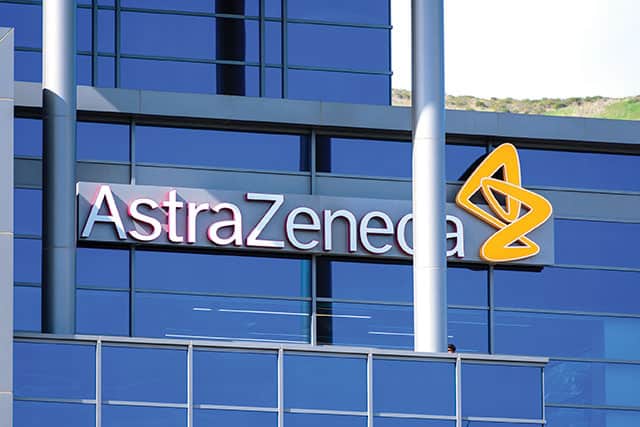AstraZeneca’s Calquence shows survival benefit in phase 3 mantle cell lymphoma study
18 Jun 2024
Clinical ResultImmunotherapyPhase 3Drug Approval

Preview
Source: PMLiVE
AstraZeneca’s (AZ) Bruton’s tyrosine kinase (BTK) inhibitor Calquence (acalabrutinib) has been shown to improve progression-free survival (PFS) in patients with previously untreated mantle cell lymphoma (MCL), according to late-stage results presented by the company.
The phase 3 ECHO trial has been evaluating the drug plus standard-of-care chemoimmunotherapy, bendamustine and rituximab, compared to chemoimmunotherapy alone in adults aged over 65 years with previously untreated MCL.
The results shared at this year’s European Hematology Association Hybrid Congress showed that the Calquence combination reduced the risk of disease progression or death by 27% compared to chemoimmunotherapy.
Median PFS was 66.4 months for patients treated with the Calquence combination versus 49.6 months for those receiving chemoimmunotherapy.
A trend was also observed in favour of the combination for the secondary endpoint of overall survival (OS), making Calquence the first BTK inhibitor to demonstrate a favourable OS trend versus standard-of-care chemoimmunotherapy in this setting. This data was not mature at the time of the analysis and the trial will continue to further assess OS, AZ said.
The company added that ECHO enrolled during the COVID-19 pandemic and a pre-specified analysis that censored COVID-19-related deaths demonstrated a further improvement in PFS, with the Calquence combination reducing the risk of disease progression or death by 36%.
Susan Galbraith, executive vice president, oncology research and development, AZ, said: “The ECHO trial data demonstrates important progress in improving outcomes for patients with MCL… We therefore believe Calquence plus chemoimmunotherapy will be an important new option for patients living with this disease.”
Estimated to affect more than 27,500 people globally, MCL is a rare and typically aggressive form of non-Hodgkin lymphoma that is often diagnosed as a late-stage disease.
Calquence is already approved in the US and several other countries to treat adults with MCL who have received at least one prior therapy, and also holds authorisations to treat certain patients with chronic lymphocytic leukaemia and small lymphocytic lymphoma.
For more details,please visit the original website
The content of the article does not represent any opinions of Synapse and its affiliated companies. If there is any copyright infringement or error, please contact us, and we will deal with it within 24 hours.
Organizations
Indications
Targets
Hot reports
Get started for free today!
Accelerate Strategic R&D decision making with Synapse, PatSnap’s AI-powered Connected Innovation Intelligence Platform Built for Life Sciences Professionals.
Start your data trial now!
Synapse data is also accessible to external entities via APIs or data packages. Leverages most recent intelligence information, enabling fullest potential.



